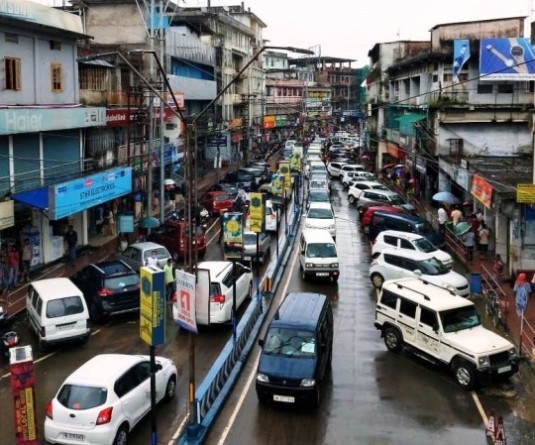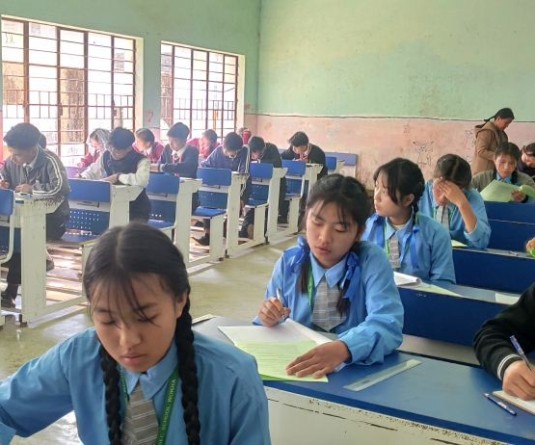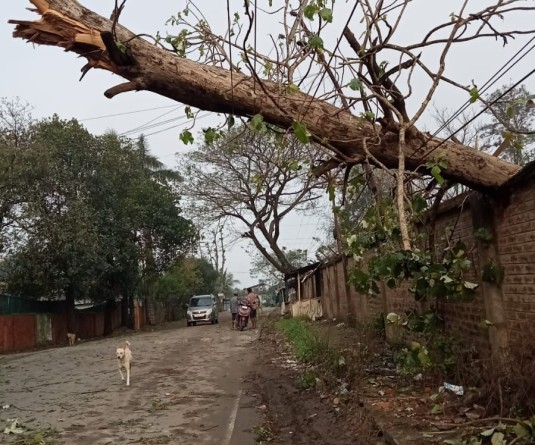
Morung Express News
Dimapur | October 24
Thinking of throwing out an old mobile phone or computer into the bin? Think again.
The Indian Union is the fifth largest producer of electronic/electrical waste, also known as e-waste, in the world, discarding roughly 18.5 Lakh tonnes of e-waste per year. The North East (NE) contributes about 15-20, 000 tonnes to this pile of toxic waste. 95% of this waste is handled manually by local dealers, putting their lives to risk as well as releasing toxic waste into the environment.
To raise awareness on the generation and disposal of e-waste, a Producer Responsibility Organisation called ‘Karo Sambhav’ (Make Possible) organized a workshop for teachers from 21 schools in Dimapur on Tuesday, in association with Rongjeng Technologies. Held at Hotel Acacia, the workshop sought to train teachers on imbibing deep learning in students, through fresh pedagogical approach, to become conscious consumers of energy.
“Karo Sambhav’s school programme aims at creating awareness on critical environmental issues like Waste from Electrical and Electronic Equipments (WEEE), engaging students on preventive environmental strategies like circular economy, and inspiring them to take actions in their daily lives,” stated Managing Director of Rongjeng Technology, Babul Gogoi, while introducing today’s workshop.
Further, “The programme enables development of 21st century skills of collaboration, critical thinking, creativity, communication, Information, Communication & Technology competencies and real-world problem solving, by deploying contemporary pedagogical practices in the classroom.”
According to the organization, the programme helps impact several stakeholders like students, their peers, parents, relatives, and communities to critically evaluate and consider the environmental impact of existing lifestyles, and move towards a creation of a circular economy, lead a sustainable lifestyle and become catalysts of change.
For academic year 2017-18, the programme is engaging 1000+ schools across India in alignment with the State Education Departments, and the State Pollution Control Boards. Today’s programme in Dimapur was attended by officials of the Nagaland Pollution Control Board, Yanathung Kithan and Limitsa Sangtam, who pledged their support to the programme in the long run. It was also attended by Deputy District Education Officer, R. Amongla, who hoped that students will benefit from the programme.
The teachers’ were taught six different modules alongside activities that would help students learn the life cycle of e-waste, methods of reducing waste, recycle it when necessary, put them back into the manufacturing cycle (one industry’s waste is another’s raw material) when possible and raise awareness on the same. The programme consists of three phases divided over a period of 4 months. In the initial phase, teachers will be trained on a specially designed toolkit for the purpose, consisting of 6 exercises based on Circular Economy, Understanding Waste, Design for environment, E-waste introduction and Collection, Petitions and Potential career options in the field of Environment. Thereafter, teachers will be working in their schools with the students on various activities, community projects, practical field-work.
Karo Sambhav is working with brands like Apple, Dell, HP and Lenovo to generate consciousness around disposal of e-waste; partnering with them on the programme is the International Financial Corporation (part of the World Bank).





